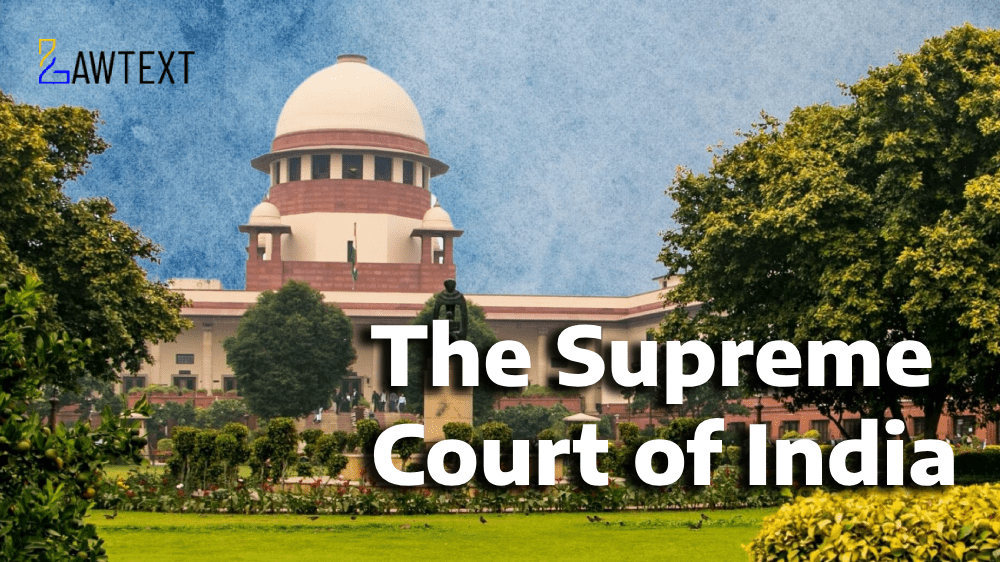

The Supreme Court dismissed the appeal, upholding the High Court’s decision. Held that Rule 21(8) of the Punjab VAT Rules could not be applied retrospectively before the enabling amendment to Section 13(1) of the Punjab VAT Act came into force on 01.04.2014. The Court ruled that the reduction of input tax credit (ITC) on stock in trade, already purchased at a higher tax rate, violated the vested rights of the respondent and lacked statutory sanction.
Acts and Sections Discussed:
Punjab VAT Act, 2005:
Section 2(o): Definition of “input tax”.
Section 2(p): Definition of “input tax credit (ITC)”.
Section 2(s): Definition of “output tax”.
Section 2(ze): Definition of “reverse input tax credit”.
Section 13(1): Entitlement to input tax credit (ITC) and its conditions.
Section 70: Rule-making power of the State Government, including retrospective application.
Punjab VAT Rules, 2005:
Rule 21(8): Introduced on 25.01.2014, dealing with input tax credit on stock in trade at reduced tax rates.
Subjects:
Input Tax Credit (ITC) – Reverse Input Tax Credit – Stock in Trade – Retrospective Application – Legislative Competence – Statutory Sanction – Punjab VAT Act – Punjab VAT Rules – Tax Rate Reduction – Vested Rights – Revenue Loss.
Nature of the Litigation:
The dispute arose from the introduction of Rule 21(8) of the Punjab VAT Rules, 2005, which reduced the input tax credit (ITC) on stock in trade from 4.5% to 2.5% for iron and steel goods, effective from 01.02.2014.
The respondent, Trishala Alloys Pvt. Ltd., challenged the rule as ultra vires the Punjab VAT Act, arguing that it was introduced without statutory sanction during the interim period (25.01.2014 to 01.04.2014).
Who is Asking the Court and for What Remedy?:
The State of Punjab appealed against the High Court’s decision, which held that Rule 21(8) could not be applied retrospectively without enabling provisions in the Punjab VAT Act.
The respondent sought a declaration that Rule 21(8) was unconstitutional and void.
Reason for Filing the Case:
The respondent contended that the reduction in ITC on stock in trade, which was already purchased at a higher tax rate, violated their vested rights and caused financial loss.
What Has Already Been Decided Until Now?:
The High Court of Punjab and Haryana allowed the writ petition, holding that Rule 21(8) could not be applied retrospectively before the enabling amendment to Section 13(1) of the Punjab VAT Act came into force on 01.04.2014.
Whether Rule 21(8) of the Punjab VAT Rules could have been introduced and applied during the period between 25.01.2014 to 01.04.2014 without any enabling provision in the parent statute, i.e., the Punjab VAT Act?
Whether the reduction of input tax credit (ITC) on stock in trade, already purchased at a higher tax rate, violated the vested rights of the respondent?
Appellant (State of Punjab):
Argued that the High Court erred in holding that Rule 21(8) could not be applied retrospectively.
Contended that the rule was introduced to reduce the cascading effect of tax and was in public interest.
Submitted that the rule applied only to the rate of tax prevailing on the date of sale of stock in trade and did not affect concluded transactions.
Respondent (Trishala Alloys Pvt. Ltd.):
Argued that Rule 21(8) was introduced without statutory sanction, as the enabling provision in Section 13(1) of the Punjab VAT Act came into force only on 01.04.2014.
Contended that the rule violated their vested rights by reducing the ITC on stock in trade already purchased at a higher tax rate.
Submitted that the rule could not be applied retrospectively to transactions concluded before 01.04.2014.
Retrospective Application of Rules:
Rules made under a statute cannot be applied retrospectively unless expressly authorized by the parent statute.
Rule 21(8) of the Punjab VAT Rules, introduced on 25.01.2014, could not be applied retrospectively before the enabling amendment to Section 13(1) of the Punjab VAT Act came into force on 01.04.2014.
Vested Rights and Statutory Sanction:
A taxable person who had already earned input tax credit (ITC) on stock in trade at a higher tax rate could not be deprived of that credit without statutory sanction.
The reduction of ITC on stock in trade, already purchased at a higher tax rate, violated the vested rights of the respondent.
Public Interest and Revenue Loss:
While the State argued that the rule was introduced in public interest, the Court held that such a rule could not be applied retrospectively without statutory sanction, as it would lead to revenue loss for the State exchequer.
Citation: 2025 LawText (SC) (2) 173
Case Number: CIVIL APPEAL NO. 2212 OF 2024 With CIVIL APPEAL NO. 2213 OF 2024 With CIVIL APPEAL NOS. 2214-2216 OF 2024 With CIVIL APPEAL NO. 2217 OF 2024 With CIVIL APPEAL NO. 2218 OF 2024 And CIVIL APPEAL NO. 2219 OF 2024
Date of Decision: 2025-02-17
Case Title: STATE OF PUNJAB & ORS. VERSUS TRISHALA ALLOYS PVT. LTD.
Before Judge: [ABHAY S. OKA J. , UJJAL BHUYAN J. ]
Appellant: STATE OF PUNJAB & ORS.
Respondent: TRISHALA ALLOYS PVT. LTD.